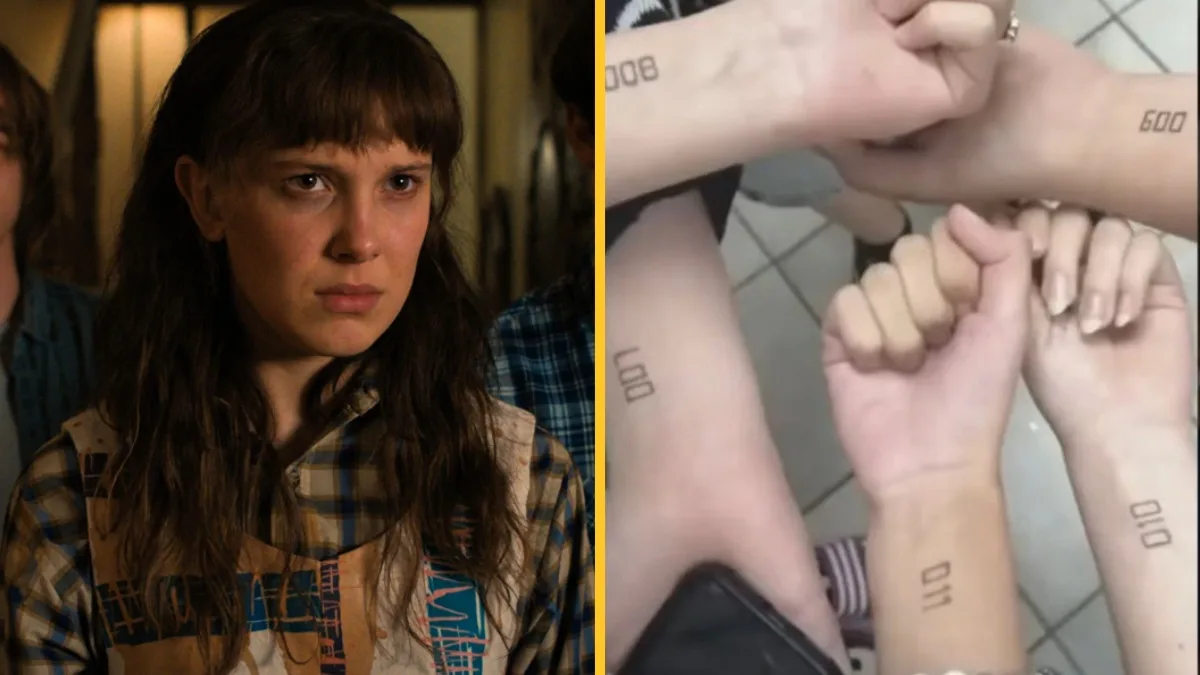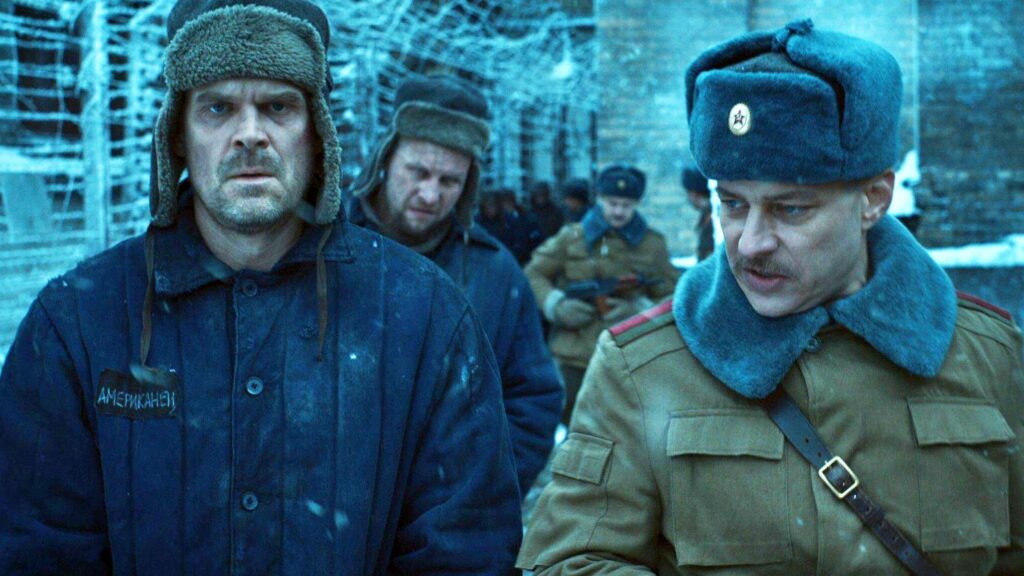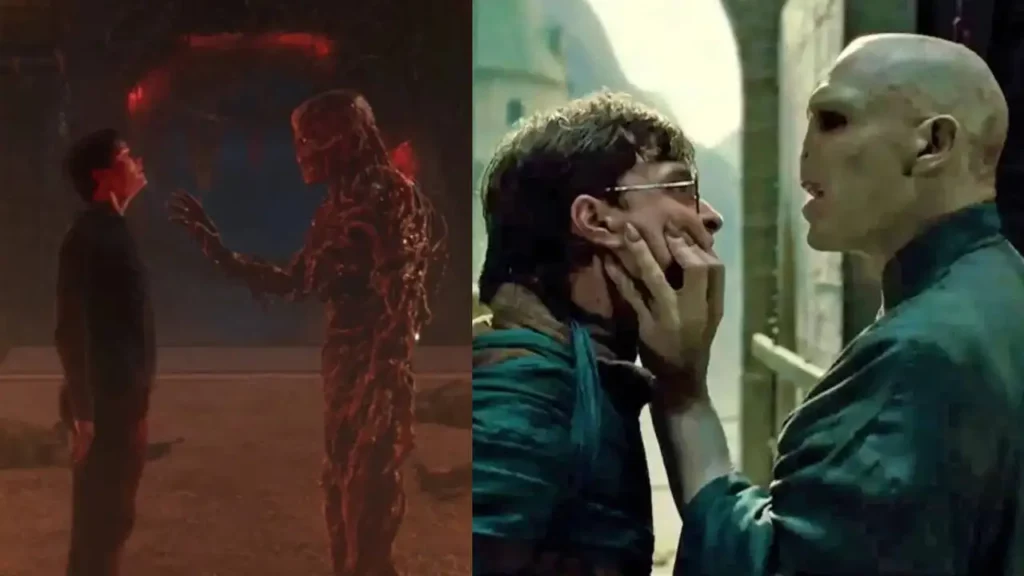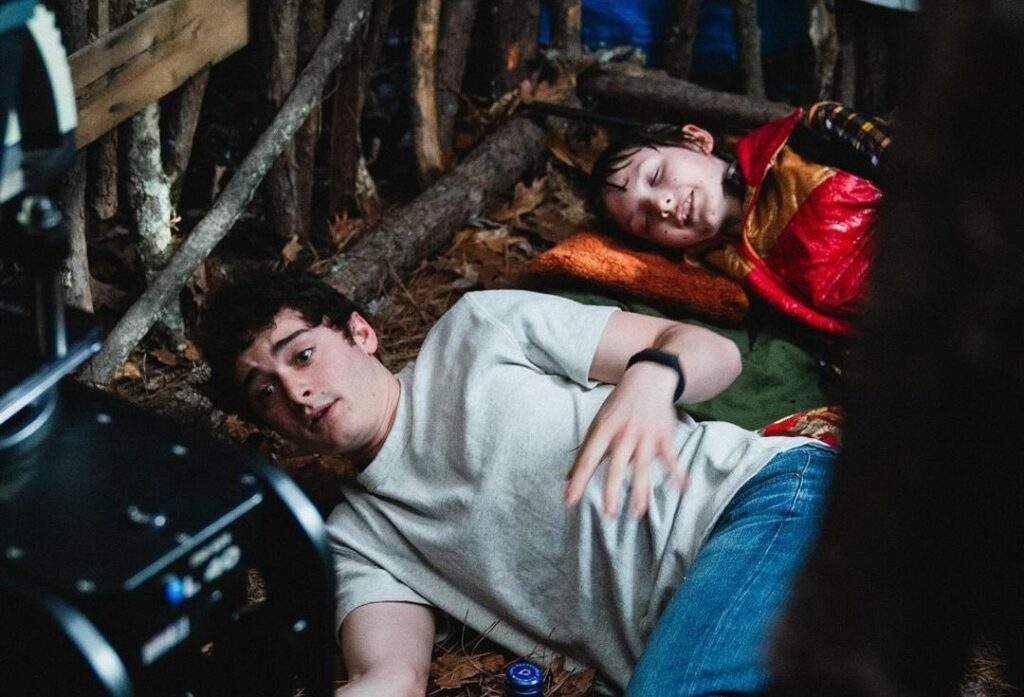Why Stranger Things Fans Should Not Get Eleven’s Tattoo
Stranger Things fans have been warned against getting Eleven tattoos due to their troubling historical associations.
Given Eleven’s (Millie Bobby Brown) immense popularity in the Netflix series, many fans have shown their love for her by getting her tattoos. Eleven, originally known as Jane Ives, was a Hawkins National Laboratory test subject who later escapes and forms a bond with the main characters, Dustin Henderson, Lucas Sinclair, and Mike Wheeler.
The reason why she was given the name, “Eleven”, is because of the 011 number that is tattooed on her wrist. She was the eleventh child test subject in Dr. Martin Brenner’s experiments as he oversaw the development of Eleven’s psychokinetic and telepathic abilities. Although fans of the show have inked ‘011’ on their wrists to show their affection for Eleven and the series, this choice unwittingly led to controversy.

A Symbol of the Holocaust
Eleven’s tattoo symbolizes dehumanization, and its significance lies in its direct connection to the Holocaust. In Nazi concentration camps, Jewish prisoners were assigned tattooed numbers not only for identification and record-keeping but also as a means to dehumanize them. The website for the Auschwitz/Birkenau Museum writes, “The prisoner numbers have become a synonym of dehumanization that struck the deportees of the concentration camp. These numbers were to serve efficient ‘management’ of camps.”
Rather than recognizing Jewish individuals as real human beings, they were dehumanized and reduced to mere numbers, deliberately stripped of the identities and names that defined their humanity. This is why some people are finding it profoundly harmful that fans are now choosing to get tattoos of these numbers on their own wrists.
Similar to the experience of Jewish individuals during the Holocaust, Eleven’s personal identity was erased and was forced to join a group of others who endured similar mistreatment. Dr. Brenner never revealed her birth name, Jane, to her; instead, she was consistently referred to as Eleven.
A Twitter thread has highlighted the problematic nature of wrist tattoos, noting that it inadvertently glorifies the Holocaust. Sharing photos of the tattoos given to Auschwitz prisoners, Emily wrote:
“In the holocaust, upon arriving at a concentration/death/work camp, you would get a tattoo like this. It was a process not only so that the nazi could keep track and records of people, but also to dehumanise people. They no longer had a name because they weren’t deemed significant enough TO have one. They were instead referred to as a number only.”
heres an informational thread on why getting a tattoo like this is really bad and the history behind it
tw// talking about the holocaust so mentions of violent things and genocide and just hatred and bigotry in general pic.twitter.com/YvJESTV3XL
— emily (@sapphicsvoid) May 31, 2022
in the holocaust, upon arriving at a concentration/death/work camp, you would get a tattoo like this. it was a process not only so that the nazi could keep track and records of people, but also to dehumanize people. they no longer had a name because- pic.twitter.com/SxJNWDWzNR
— emily (@sapphicsvoid) May 31, 2022
they werent deemed significant enough TO have one. they were instead referred to as a number only. it was also used to identify dead bodies for their records. there were different numbering sequences that meant different things such as specific ethnic groups pic.twitter.com/x18mb1azJZ
— emily (@sapphicsvoid) May 31, 2022
those who were sent immediately to the gas chambers upon arrival didn't receive a number. at the beginning, the numbers were sewn onto the uniforms, but later were tattooed like this on the arm or wrist. more than 400,000 prisoner serial numbers were assigned pic.twitter.com/DPPcBvpRgp
— emily (@sapphicsvoid) May 31, 2022
here is a survivor talking about the arrival and tattoo process. https://t.co/Mmme22FU0Y
— emily (@sapphicsvoid) May 31, 2022
Season 4 Also Caused Controversy By Filming At a Former Nazi Prison

This isn’t the only instance of Nazi associations within the show. Netflix filmed Hopper’s imprisonment scene in a Russian camp in the Lithuanian prison, Lukiskes Prison, which led to a severe backlash. The prison was notorious during World War II, as it was used by the Nazis to execute countless Jewish individuals, Romani people, and political prisoners.
Furthermore, Netflix has partnered with Airbnb to transform it into a hotel and offer an immersive Stranger Things experience, sparking additional backlash. The show faced backlash because not only this was a former Nazi prison used for entertainment purposes, but also the historical atrocities and human suffering linked to the location were overshadowed and trivialized by the Stranger Things-themed décor in the Airbnb.
Ultimately, tattoos are deeply personal expressions, and what matters most is the significance they hold for the individual. Tattoos can serve as symbols of passion, dedication, or even fandom, connecting people to what they love most. However, it’s equally important to be sensitive to the emotions of others.
Trending News

How The Oklahoma Flyer Could Explain Everything in Stranger Things 5 Finale

How Stranger Things 5 May be Setting Up a Dark Harry Potter Theory

Mr. Clarke Might Already Have Predicted the Stranger Things 5 Ending

Theory: Stranger Things 5 Might Reverse Time to Save Will Byers





